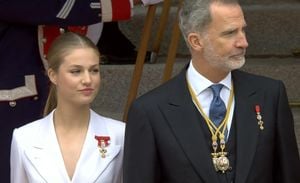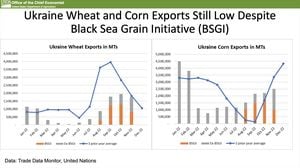With the holy month of Ramadan just around the corner, Muslims worldwide are preparing for the observance marked by fasting, reflection, and community. Predictions for the commencement of Ramadan vary across regions, yet enthusiasm remains high as the dates approach.
According to the Pakistan Space and Upper Atmosphere Research Commission (Suparco), the new moon marking Ramadan is set to occur on February 28, 2025, at 5:45 PM PST. Notably, the scientific analysis indicates low visibility for the crescent moon, which suggests Ramadan will likely start on March 2, 2025, as the moon’s angular separation from the sun and atmospheric conditions pose challenges for moon sighting. Suparco confirmed, "The likelihood of a moon sighting on February 28... is extremely low."
Meanwhile, Saudi Arabia's calculations suggest the crescent may be visible, making March 1 the probable start date for Ramadan there. The Central Ruet-e-Hilal Committee, tasked with officially announcing the commencement of Ramadan based on moon sightings, will gather testimonies from across Pakistan before making the announcement.
Ramadan, the ninth month on the Islamic calendar, is not only about abstaining from food and drink from dawn until sunset; it also signifies deep reflection, community support, and increased charitable activities. Pakistani traditions often feature roadside stalls serving Iftar meals to those breaking their fast, highlighting the sense of community and generosity during this holy month.
Families look forward to the joyous celebration of Eid ul-Fitr, which marks the end of Ramadan. Based on astronomical predictions, Eid ul-Fitr is expected to fall on March 31, 2025, if Ramadan lasts the full 30 days. This significant holiday is also celebrated with public holidays, which may vary depending on the moon’s visibility. For example, if Ramadan lasts 29 days, the public holiday is set from March 30 to April 2, 2025, whereas 30 days entails holidays extending to April 3. According to Gulf Buzz, "If Ramadan lasts 29 days... the holiday will likely stretch to 5 days."
Conversely, Dubai has its own set of traditions during Ramadan. The Dubai Police recently announced both stationary and mobile Iftar cannons to be deployed across the emirate, echoing the centuries-old tradition where the booming sound announces the end of the day’s fast. Cannons will fire twice on the eve of Ramadan and once daily at Maghrib to signal Iftar time. Cannons will also mark the commencement of Eid celebrations on the morning of Eid. According to KT, "Dubai Police announced the locations of both stationary and mobile Iftar cannons around the emirate on Monday."
Beyond the cannon tradition, Ramadan is observed with heightened civic spirit, as many residents engage in public charity drives and community events to support those less fortunate. The celebration leads to communal prayers, feasts, exchanging gifts, and social gatherings during Eid, reinforcing bonds among families and friends.
The shifting dates of Ramadan each year occur due to the Islamic lunar calendar, which can move backward by about 10 to 11 days each year. This year, anticipation around Ramadan's early arrival prompts excitement and planning among communities for whether celebrations will commence on February 28 or March 1. This uncertainty adds to the charm of this cultural period, as final confirmations only come as the crescent moon is sighted.
Ramadan brings with it immense joy and spirituality, and as families prepare for fasting and communal gatherings, the sense of eagerness fills the air. Residents await Eid ul-Fitr with fervor, ready to embrace the traditions and festivities unique to their cultures, whether it’s through generous Iftars or joyous celebrations.



